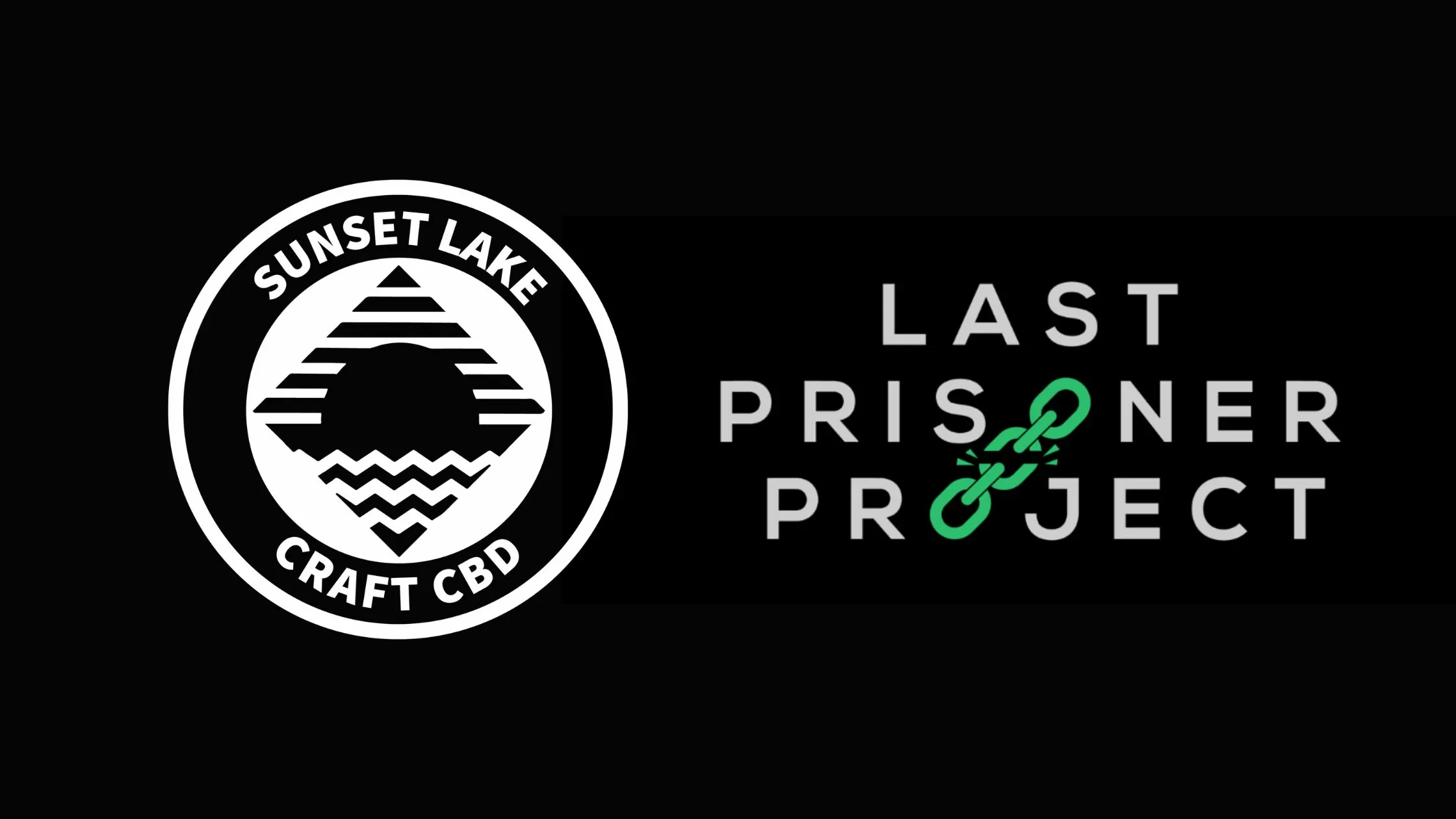No products in the cart.
How Hemp Can Help: Last Prisoner Project

By: T.J. Anania
Update: We’ve donated $5,500 to the Last Prisoner Project thanks to you!!
Did you know that there are likely over 40,000 people incarcerated in the United States for cannabis-related offenses?
That’s an astounding figure when you consider that 21 out of 50 states have ‘legalized’ recreational cannabis use. Something doesn’t add up. Cannabis is big business, so much so that you can invest in publicly-traded cannabis companies listed on the New York Stock Exchange.
And yet, 40,000 people still sit behind bars for cannabis-related offenses. That’s why we here at Sunset Lake CBD have decided to donate 5% of the proceeds from our 420 sales to Last Prisoner Project.
What Is The Last Prisoner Project?
Last Prisoner Project is a nonprofit addressing the disparity in cannabis policy and redressing the harm caused by cannabis prohibition. As the United States moves away from cannabis criminalization, it’s of the utmost importance that we don’t sweep the hundreds of thousands of lives who’ve been impacted by criminalization under the rug.
Last Prisoner Project is taking a comprehensive approach to cannabis prohibition, starting at the policy level all the way to expunging records of those who are still impacted by cannabis-related offenses they may have committed years prior. They utilize a three-pronged approach to secure full freedom in the communities that they serve.
Last Prisoner Project’s Three-Pronged Approach
Awareness
The first prong is awareness. Awareness about the scope of America’s history of unjust cannabis policy and awareness of the far-reaching harms committed upon Americans by said policies. Last Prisoner Project raises awareness through social media campaigns and by partnering with dispensaries and cannabis-focused businesses.
In some small way, that’s what we are trying to accomplish with Sunset Lake CBD’s 420 sale fundraiser for Last Prisoner Project. Not only are we committing to donating a portion of the proceeds, but we are also elevating the organization on our own platform and increasing awareness about its mission.
Intervention
The second prong is direct intervention. Last Prisoner Project runs a number of programs that allow individuals to support cannabis prisoners in America both, emotionally and financially.
- Letter Writing Programs: You can stay connected to the people behind bars for cannabis offenses and let them know that you are fighting for their freedom and lend them your support during their struggles.
- Commissary Support Fund: A portion of the money donated to Last Prisoner Project is distributed into the commissary funds of cannabis prisoners. If you’re unfamiliar, prison commissaries are stores inside the prison where people can purchase hygiene products, food, writing tools, etc. Distributing money into commissary funds allows people to spend time investing in themselves rather than forcing them to work for pennies on the dollar.
- Re-entry Services: Last Prisoner Project also helps people who are returning home from prison get back on their feet. Often when people leave prison, they lack funds to secure housing, transportation, medical care, etc. Essentially, everything you might need in order to stay out of prison. One-time grants made by Last Prisoner Project can help constituents secure much-needed help and reduce their chance of recidivism.
Advocacy
Perhaps some of the most important work Last Prisoner Project pursues is addressing the systemic problems posed by cannabis prohibition. In order to end cannabis-related incarceration, we first must completely decriminalize cannabis and expunge the records of those still impacted by past offenses.
To do so, Last Prisoner Project works with lawyers and lobbyists in several states advocating for state-level policy reforms.
Why Sunset Lake CBD Is Supporting LPP
As cannabis farmers who are navigating an everchanging CBD marketplace, we realize how unfair it is that while we make our living harvesting hemp cannabis plants, there are still thousands of people still locked up for cannabis-related crimes.
We also recognize that there is a racial component to this. It is predominantly Black and Brown individuals who are incarcerated for cannabis-related offenses.
Both are reasons why Sunset Lake CBD has decided to put our money where our mouth is and donate 5% of our 420 sale proceeds to the Last Prisoner Project. We will be updating this post with a final dollar amount soon so stay tuned. In the meantime, we urge you to get involved, too. Find out how when you visit LastPrisonerProject.org.
